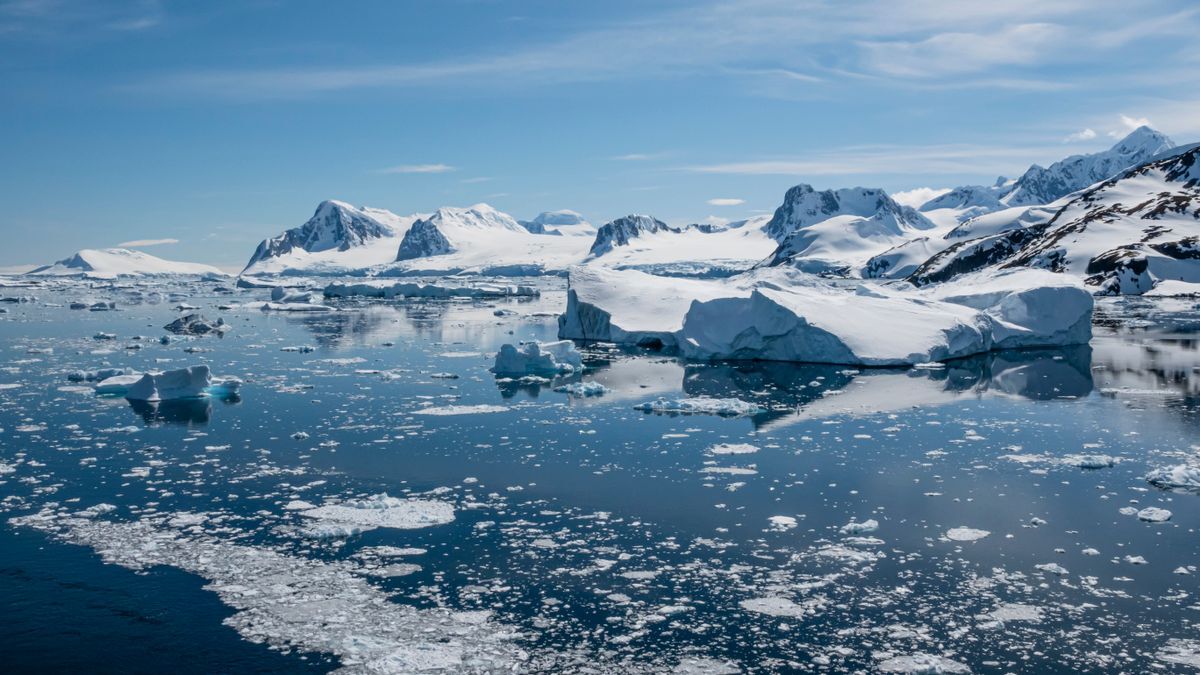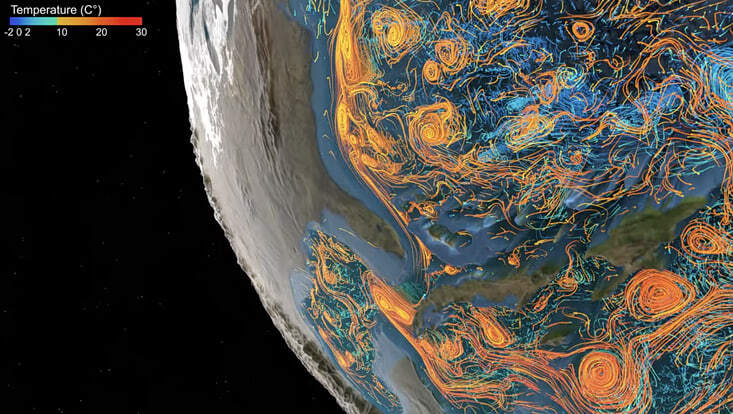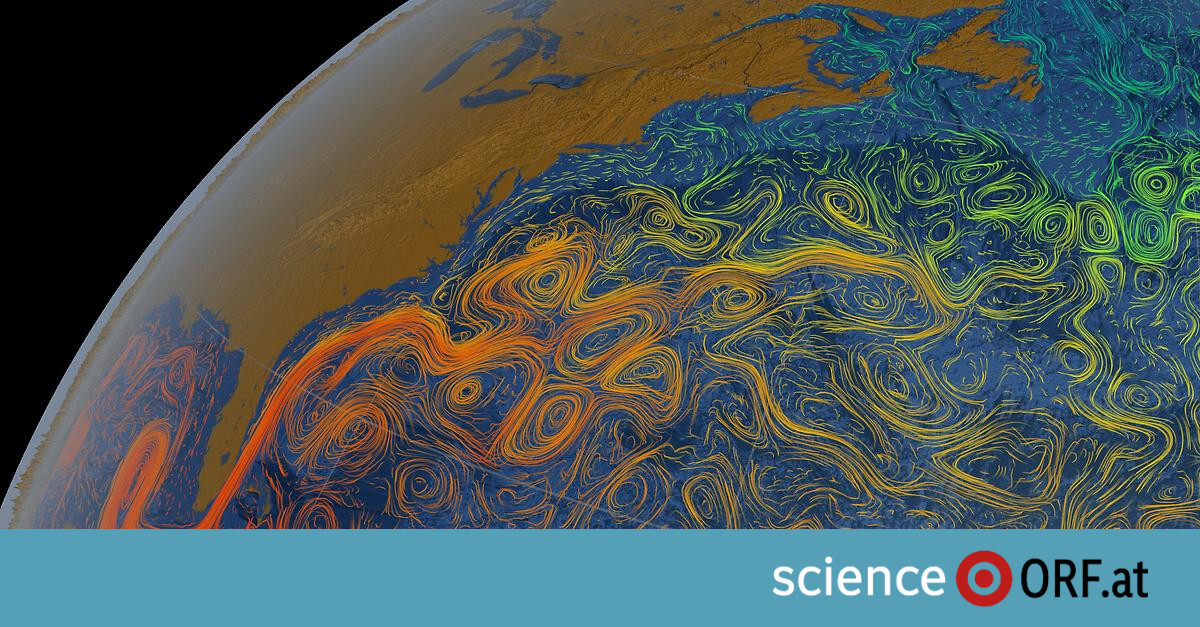Das Klima läuft AMOC
Europas kalte Zukunft und das Versagen der deutschen Politik
@blaetter @ChristianStoecker
#klimakrise #AMOC #Golfstrom #klima
https://www.blaetter.de/ausgabe/2025/april/das-klima-laeuft-amoc
Das Klima läuft AMOC
Europas kalte Zukunft und das Versagen der deutschen Politik
@blaetter @ChristianStoecker
#klimakrise #AMOC #Golfstrom #klima
https://www.blaetter.de/ausgabe/2025/april/das-klima-laeuft-amoc
@connyOe @rahmstorf @Ruth_Mottram
... #AMOC #Klimawandel #Klimaforschung #Erderwärmung #Eiszeit #Golfstrom #ACC
(3/3)
Zur einer #Eiszeit wird es hingegen in den nächsten 50.000 Jahren *nicht mehr* kommen können
, es sei denn durch einen sehr großen #Meteoriteneinschlag:
https://mastodon.social/@HistoPol/113451660913899315
//
@connyOe @rahmstorf @Ruth_Mottram
#AMOC #Klimawandel #Klimaforschung #Erderwärmung #Eiszeit #Golfstrom #ACC
(2/n)
...wohl auf den #BritischenInseln, viel kühler werden, wie auch in einigen anderen Regionen.
Es wird auch gewaltige biologische Umwälzungen wegen des Wegfalls der Meeresströmungen geben und die nun *neu* prognostierten *minus* 20% in der ACC-Zirkulation bis 2050 wird jedoch zu einer *weiteren Beschleunigung* der #Erderwärmung führen. 1)
...
@connyOe
@rahmstorf
@Ruth_Mottram
#AMOC #Klimawandel #Klimaforschung #Erderwärmung #Eiszeit #Golfstrom #ACC
(1/2)
Die #Golfstrom-/ #ACC- 1)/ #AMOC-Diskussion 2) beobachte ich schon sehr lange. Klar, bei einem Stillstand würde es, v. a...
1)
#AntarktischerZirkumpolarstrom (ACC)

Between the last glacial maximum & today, humans were exposed to severely rising sea levels
& recurrent phases of strong abrupt cooling events.
#MPIM researchers have uncovered the origin of these strong temperature fluctuations over the past 20,000 years using a novel coupled climate-ice sheet model. They found that #iceberg armadas
& changed river courses were responsible for #AMOC weakening & abrupt cooling.
https://mpimet.mpg.de/en/communication/detail-view-news-homepage/new-climate-model-reveals-the-triggers-of-abrupt-climatic-changes-in-the-past-20000-years
CC BY 3.0 Ziemen et al. 2025 https://doi.org/10.5446/69659
Recommended first video from a new YT channel.
Astrum Earth: *What the AMOC Will Do to Earth This Century*
https://www.youtube.com/watch?v=GDy7Q8iAtFg
( Invidious: https://id.420129.xyz/watch?v=GDy7Q8iAtFg)
Good AFP fact check on false claims by notorious climate misinformer Anthony Watts about the risk of a major weakening of the Atlantic Meridional Overturning Circulation, known as #AMOC.
It is laudible that AFP makes the effort to sort science from lobbyist distortions!
https://factcheck.afp.com/doc.afp.com.36Z27BV
Die Abschwächung der Nordatlantischen Umwälzströmung (#AMOC) könnte bis 2100 wirtschaftliche Schäden in Billionenhöhe verursachen.
Eine schwächere Strömung bindet naturgemäß weniger #CO2 im Ozean, was die #Erderwärmung weiter verstärkt. Dadurch steigen die gesellschaftlichen Kosten durch #Extremwetter wie #Hitze, #Dürre und #Überschwemmungen. Die Folgen wurden bisher wohl unterschätzt.
https://www.uni-hamburg.de/newsroom/forschung/2025/0225-amoc.html

Schwächere Meeresströmung = Billionenkosten? Eine #AMOC-Abschwächung senkt die #CO₂-Aufnahme des Ozeans, verstärkt die #Erderwärmung & treibt Kosten in die Höhe - das fanden die Forscher @felixschaumann & @Edu_Alastrue in ihrer neuen Studie heraus. In diesem short Wissen-Was-Video fasst Carolin Riethmüller das Wichtigste für Euch zusammen (2:45 min)
(@MPI_Meteo
https://youtu.be/BoNA-C7fFoI?feature=shared
Neue Studie der Universität Hamburg und des Max-Planck-Instituts für Meteorologie: Schwächere Atlantikströmung #AMOC könnte Billionen kosten
https://www.uni-hamburg.de/newsroom/forschung/2025/0225-amoc.html

Niu et al investigate the growth of the Eurasian Ice Sheets from the MIS 3 minimum (38,000 years ago) using a coupled ice sheet, atmosphere and ocean model. They find the rapid growth of the ice sheets happened only when there was a weak AMOC.
Jet streams are fast flowing, narrow air currents. The main jet streams flow west to east around the globe.
Because of #climate collapse, the northern polar jet stream becomes more variable. A stratospheric polar vortex disruption is linked with extreme cold winter weather across parts of Asia and North America, including the Feb. 2021 North American cold wave. Report: https://www.bbc.com/news/science-environment-58425526
Anyway, #AMOC (the main ocean current system in the Atlantic Ocean) currently offers 12°C to Ireland:
@muellertadzio The situation is as bad as it ever was, as @rahmstorf points out. In my words: the new study is mainly a semantic excercise in redefining “collapse” in a rather disingeneous way. I.e. it’s main point is the misleading head line.
But read Ramstorf’s take in his own words: https://www.realclimate.org/index.php/archives/2025/02/how-will-media-report-on-this-new-amoc-study/

"How will media report on this new AMOC study?"
I do get a bit of a kick out of Stefan Rahmstorf correctly accusing others of excessively optimistic messaging re: #AMOC #collapse in this blogpost, after calling #TeamCollapse "the new climate deniers"
https://www.realclimate.org/index.php/archives/2025/02/how-will-media-report-on-this-new-amoc-study/

Dazu schreibt Rahmstorf, weil er sich nämlich fragt, wie das neue #AMOC Paper wohl in den Medien nacherzählt wird... https://www.realclimate.org/index.php/archives/2025/02/how-will-media-report-on-this-new-amoc-study/
"It’s essentially a discussion about semantics, not physics. Do you call it an AMOC collapse if a weak and shallow wind-driven overturning persists after the thermohaline part has collapsed? Or not?"
Ich setze noch einen drauf:
ist es überhaupt noch eine Zirkulation, wenn nur noch der Wind-getriebene Teil der AMOC läuft?
Wenn nur noch der Wind für ein Mischen des Oberflächenwasser sorgt, entsteht ja kein Ozean-getriebener Nordwärts-Sog der Oberflächenwärme mehr, und kein südwärts strömendes Tiefenwasser.
Das kann man ja dann nicht mehr Zirkulation nennen.
Es ist dann fast schon nur noch Glücksache, ob der Wind von Washington ausgehend schnurgerade den Atlantik überquert oder mal Richtung Norwegen weht und uns warme Luft bringt.
Anstatt wie die Garantie heute, dass warme Luft auch im Winter durch die Zirkulation zu uns kommt, in der das abgekühlte aber schwere salzige Wasser bei Grönland und Island absinkt und so Wassermassen aus dem warmen Süden hinter sich her ziehen.

"A total #AMOC collapse is unlikely this century. But even weakened currents would cause profound harm to humanity. 'In the short term, it doesn’t really matter if we have a strong weakening, say 80%, or a collapse.'"
But at least the headline is unrealistically encouraging :)
https://www.theguardian.com/environment/2025/feb/26/total-collapse-of-vital-atlantic-currents-unlikely-this-century-study-finds
"What previous studies have labelled an ‘AMOC collapse’ is now called ‘no collapse’. It’s essentially a discussion about semantics, not physics. Do you call it an AMOC collapse if a weak and shallow wind-driven overturning persists after the thermohaline part has collapsed? Or not?"
https://www.realclimate.org/index.php/archives/2025/02/how-will-media-report-on-this-new-amoc-study/
Rahmstorf about the new #AMOC paper misleadingly titled "Continued Atlantic overturning circulation even under climate extremes" https://www.nature.com/articles/s41586-024-08544-0
Good to know.
Now I think that maybe Jochem Marotzke, cli-sci at the Max Planck Institute for Meteorology in Hamburg, also applies semantics when he says that collapse can't occur – and in a new sentence then explains the fact that the Gulf Stream is purely wind-driven and will never shut down.
If this is his only argument against "AMOC Collapse", it's a weak one.
But I also heard him say something like, that the freshwater input isn't available that's required for making AMOC react like in #paleoclimate .
***
We do know how much water comes today from Greenland, from the Alpes and from Canada's remaining glaciers.
And compared to what melted during the last deglaciation, it's a tiny amount.
But we don't know how much more it rains on the Northern #Atlantic ocean compared to pre-Holocene times when it was so much colder up there in the North.
We don't even know how much it rains in the AMOC-relevant regions today.
Also, ice models for the deglaciation do differ a lot in the AMOC-relevant regions, both for land-bound ice and #seaice, if they even bother to model sea ice at all.

#FYI #PBSTerra #Weathered #AMOC #GulfStream
AMOC slowing, tipping point, collapse and the effects explained
Kollaps des Golfstroms unwahrscheinlich
Wenn die Atlantische Umwälzströmung (#AMOC), zu der auch der #Golfstrom zählt, zusammenbricht, hätte das drastische Folgen: Unter anderem würde es in Europa deutlich kälter, andernorts hingegen noch heißer und das #Wetter insgesamt extremer. Laut einer neuen Modellierungsstudie wird das – anders als zuletzt von manchen Fachleuten befürchtet – zumindest nicht in diesem Jahrhundert der Fall sein.
Wie Jochem Marotzke vom Max-Planck-Institut für #Meteorologie in Hamburg gegenüber dem deutschen „#Science Media Center“ ausführt, zeige die neue Arbeit das komplexe Wechselspiel zwischen der AMOC, dem Auftrieb von Tiefenwasser im Südlichen #Ozean sowie von #Umwälzströmungen im Indischen und Pazifischen Ozean. Das mache Diagnose und Prognose generell komplizierter als gedacht.
Der renommierte Klimaforscher Stefan Rahmstorf vom Potsdam-Institut für Klimafolgenforschung (#PIK) betont aber, „dass die neue Studie nicht im Widerspruch zu früheren Modellierungsstudien über künftige AMOC-Veränderungen und ihre klimatischen Auswirkungen steht und dies auch nicht behauptet.“ Die genauere Untersuchung des windgetriebenen Anteils sei aber ein wertvoller Beitrag zur wissenschaftlichen Literatur.
Starke Abschwächung wahrscheinlich
Auch alle anderen befragten Forscher begrüßen die neue globale Betrachtung als nützliche Herangehensweise angesichts der komplexen Zusammenhänge. Deswegen seien seriöse Prognosen zu einem endgültigen Zusammenbruch auch so schwierig. Gleichzeitig betonen sie unisono, dass bereits eine Abschwächung der Strömung – selbst ohne vollständigen Kollaps – erhebliche Auswirkungen auf das #Weltklima und die globale #Niederschlagsverteilung haben könnte.
https://science.orf.at/stories/3229068/
#Klimawissenschaft
#Ozeanographie
#Klimakatastrophe
#Kipppunkt
